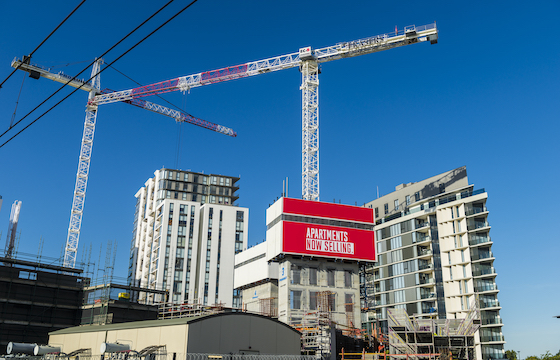
Considerations prior to buying residential property in Australia
Foreign investors are very interested in the Australian property market. As is to be expected, there are several hurdles to overcome before making a purchase.
The Australian property market has for many years been attractive to foreign investors. Thirty-nine percent of Sydney’s population were born abroad, with Melbourne closely following at 36% (Australian Bureau of Statistics – Demographic Group). The country is favourably located, with all of its major capital cities less than 8,000 kilometres from mainland China. In the 2017 financial year the Foreign Investment Review Board (FIRB) considered more than 14,000 investment applications. However, if your clients are thinking of purchasing property in Australia, there are number of things to be aware of:
1. Ensure that your purchase complies with FIRB requirements
Anyone other than an Australian citizen, Australian permanent resident or New Zealand citizen is required to obtain permission from the FIRB prior to buying both new and existing property in Australia.
FIRB approval is only given for existing properties to temporary visa holders (those holding visas valid for longer than 12 months) who are purchasing the property as their main residence. The property cannot be rented out at any time and must be sold within three months if no longer used as a main residence, explain the Ecovis experts.
New dwellings can be purchased by both temporary visa holders and foreign non-residents. There is generally no limit on the number of new dwellings that can be purchased but approval is generally required prior to each acquisition as FIRB approval relates to the specific property.
If your clients are looking to purchase property in Australia, it is important to note that they should check to see whether their contracts are subject to FIRB approval and provide sufficient time for this approval to be granted. The FIRB process can also preclude your client from buying at auction (a common practice in Sydney) as there is no cooling-off period.
 Buying property in Australia continues to be an interesting proposition for foreign investors. It is still important to make careful preparations, however, because there are many regulations to be observed.
Buying property in Australia continues to be an interesting proposition for foreign investors. It is still important to make careful preparations, however, because there are many regulations to be observed.
2. Be aware of additional acquisition costs
In addition to any professional fees in relation to the purchase of the property, there are two significant costs that your client will need to budget for.
First, if FIRB approval is required, the approval costs start at $5,600 and increase in relation to the price of the property. This can be as much as $102,300 where the property price reaches $10m.
Second, the purchase of residential property in Australia is subject to transfer duty, the rates for which differ depending on the state in which the property is located. In addition to the base transfer duty amount, Queensland, New South Wales, Victoria, South Australia and Tasmania also charge a premium rate for foreign residents. This premium or surcharge rate can be as high as an additional 8%, which can have a significant impact on investment yield and affordability. A comparison of the transfer duty on a $1m new investment property state by state is below:
| Australian Capital Territory (ACT) | $ 38,750 |
| New South Wales (NSW) | $ 120,490 |
| Northern Territory (NT) | $ 49,500 |
| Queensland (QLD) | $ 108,025 |
| South Australia (SA) | $ 118,830 |
| Tasmania (TAS) | $ 70,185 |
| Victoria (VIC) | $ 125,000 |
| Western Australia (WA) | $ 42,615 |
3. Taxation in Australia
Income earned on Australian real estate is taxable in Australia and generally imposes an obligation on your client to register for an Australian tax file number and lodge an annual income tax return. Whilst the administration of such a return is fairly straightforward and most property agents prepare statements to assist with the preparation of the tax returns, it is worth understanding the taxation impact on the property when calculating overall yield. Non-residents are taxed in Australia from the first dollar that they earn and any gains on the eventual sale of the property are also taxed in full in Australia.
Conclusion
The Australian property market continues to be an attractive proposition for investment. However, it is important for foreign investors to understand both the true cost and process for purchasing property in Australia so that they can evaluate their options properly before proceeding.
Contact us:
Elissa Lippiatt
ECOVIS Clark Jacobs
Level 2, Piers 2 & 3, 13 Hickson RoadNSW 2000 Walsh Bay, Sydney
Phone: +61 2 9264 1111
www.ecovis.com/australia

